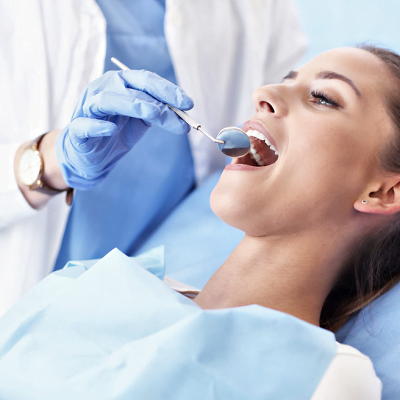Unsuitable foods can cause unnecessary pain and raise the risk of tooth fracture or damage, which could require more dental work. Patients must not eat until the numbness fades. They may bite their tongue or tissues, which could damage their teeth. Because teeth are sensitive after a root canal and a crown or permanent filling has not yet been set, we always recommend that our patients eat soft food during the few days it takes for the swelling to subside and the treatment to be completed.
What are Root canals?
Dental surgery removes huge cavities and fixes teeth safely. After extracting the nerve, the tooth is cleaned and filled for protection. This dental technique is great for saving teeth for extraction. Cavities are in the middle of teeth.
Why do you need it?
This procedure is needed if dental roots are infected or inflamed. After an infection, the only indication is pain during eating, drinking, or chewing. To succeed with this therapy, a candidate must clean the tooth interior.
- Sealing the treated oral area.
- As a result, disease pain is reduced.
- Dental pulp treatment.
Root Canal Candidates
Dental root canal therapy works for all ages and patients. The individual’s needs and conditions are:
- Get gum disease.
- Have a fractured tooth.
- infected tooth.
- Significant pain, swelling, discomfort, and inflammation.
Preparation
At the initial appointment, an applicant must be prepared for therapy. The dentist will take an x-ray and do additional testing on the infected tooth. After that, the doctor will recommend root canals for the damaged teeth.
An initial consultation is necessary for a patient to fully grasp the treatment, its length, benefits, and cost. Next, the patient will fully understand the terms and circumstances.
Procedure for Root Canal Treatment
The Root Canal Treatment procedure in Islamabad, Rawalpindi, and Pakistan follows these steps:
- After cleansing, the practitioner will inject local anesthesia to numb the area.
- After that, a dentist will put a dental dam.
- The dentist will drill a hole in the affected tooth and remove the dead pulp.
- After disinfecting the dental canals, your dentist will shape them.
- Gutta-percha will fill the treated root canal and the remaining holes.
- The patient decides whether to have a dental crown or filling placed on their tooth to safeguard it.
- Root canal healing is quick. A patient may feel pain for a few days following the treatment, but taking the recommended medications at the right times will help.
- Root canal healing takes a short time. You may suffer pain for a few days, but the appropriate drugs will relieve it.
Follow-up care:
The aftercare recommendations must be followed immediately after treatment. A doctor may prescribe antibiotics to prevent infection. The following are common instructions:
- Do not take blood thinners.
- Use pain, infection, and other medication as directed.
- Eat only liquids all day.
- Eat ice cream if you like it.
- Practitioners must ensure good tooth care.
What to Eat After a Root Canal?
When performing root canal procedures, a dentist can treat an infected or abscessed tooth by removing the inflamed pulp. After disinfecting and cleaning the tooth cavity, it is filled, which creates a seal on the cavity. The process is usuallyn’t painful. However, your mouth will be irritated and need time to heal.
What foods are safe after a root canal?
We suggest soft, pureed foods for an acceptable list. Some examples of these foods:
- sauce made from apples
- Yoghurts and fruit drinks
- Soft fruits include bananas, pears, and peaches.
- The eggs
- Mashed potatoes and soups
- Some simple meals using these items are:
- Breakfast options include scrambled eggs with soft toast, pancakes, a healthy smoothie, cream of wheat, or yoghurt and fruit.
- Lunch includes soup, soft salad, mashed potatoes, mac-and-cheese, and cooked veggies with hummus.
- Dinner may include meatloaf, mashed potatoes, shredded beef, spaghetti or noodles etc.
- Sweets and snacks include ice cream, yoghurt, custard or applesauce, frozen yoghurt or ice creams.
Is ice cream okay after a root canal?
Yes, you can eat an ice-cream after a root canal. Cold therapy helps numb the area treated after a root canal, reducing inflammation and pain and speeding recovery. Ice cream’s smooth texture, which requires little to no chewing, is another reason it is popular.
How Much Does Root Canal Cost in Islamabad?
The prices in Islamabad, Rawalpindi, and Pakistan can starts from PKR 12,000 to PKR 17,000, depending on factors. Other elements affecting price include professional practitioner fees.
- Clinic location and neighborhood.
- When it comes to clinic reputation.
- We use medication and anesthetic.
- If necessary, many sessions.
- If patients want more cost information, they should contact us.
Schedule Your Appointment!
Root canal treatment is effective at preventing tooth infections and pain. For effective and impressive dental procedures, visit SKN Cosmetics. Book a consultation by filling out the form or calling us at our clinic.



